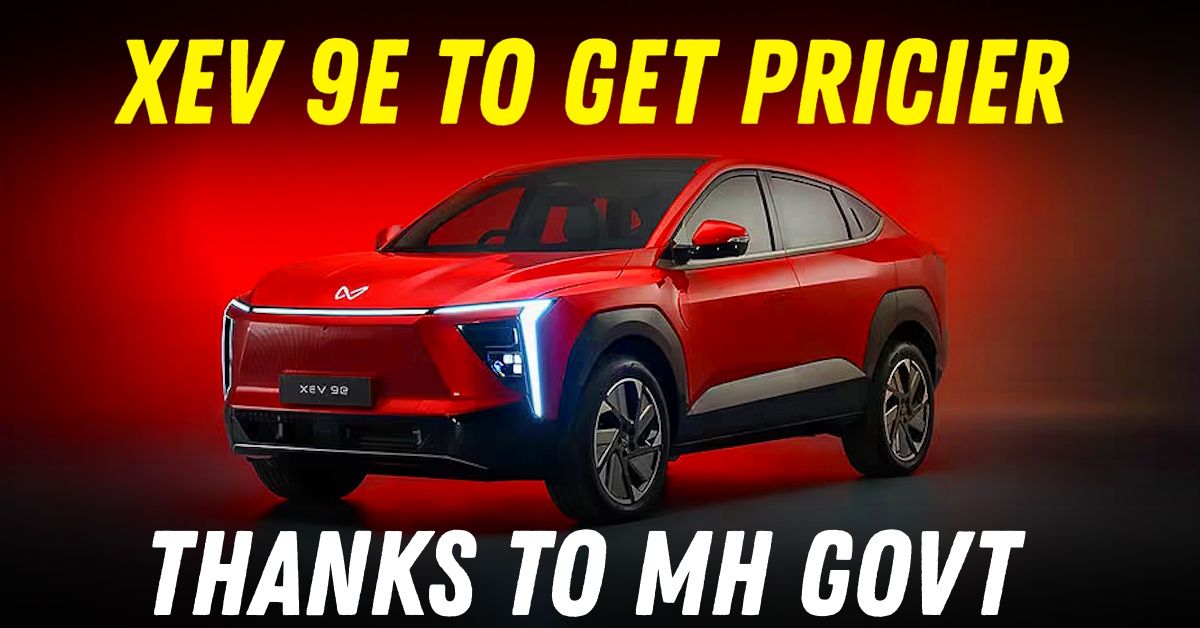Electric Car Prices Go Up In Maharashtra, 6% Tax Introduced: Who Can Escape The Tax?


From July 1, buyers of electric vehicles priced above thirty lakh rupees in Maharashtra will pay a new six percent road tax. This development marks a sharp policy shift in a state that has long positioned itself as an EV-friendly leader. Until now, electric vehicles in Maharashtra enjoyed significant tax exemptions and benefits that made premium EVs far more competitive against similarly priced petrol or diesel models.
The new regulation also introduces a one percent surcharge on all other vehicles powered by petrol, diesel, CNG or hybrid systems. However, the six percent rate on high-end EVs has triggered the most discussion in the industry, with automakers and potential buyers expressing concern that the move could slow down the growth of clean mobility in the premium segment.
For models like the BMW iX, Mercedes EQE, Audi e-tron, Jaguar I-Pace and even the upcoming Volvo EX30, the new tax translates into a price hike of over one lakh rupees at minimum. In the case of vehicles priced closer to seventy lakh rupees, the additional cost could reach four lakh rupees or more. This wipes out much of the pricing advantage EVs held over comparable petrol or diesel luxury cars.
Until now, buyers of premium EVs in Maharashtra enjoyed road tax waivers and reduced registration charges. These benefits were not just monetary—they also sent a strong message about the state’s intent to push electrification. With this reversal, buyers may begin re-evaluating whether the price premium is worth it.
Some dealers have reported buyers rushing to finalise deliveries before the new tax kicks in. Others worry that bookings for high-end electric cars may be cancelled or deferred until the picture becomes clearer.
According to government officials, the aim is to raise funds for infrastructure and road maintenance while treating all fuel types more evenly. A six percent tax on EVs above a certain price point is seen as a way to ensure high-end buyers contribute to the state’s revenue just like those purchasing premium ICE vehicles.
However, critics argue that the move sends mixed signals at a time when the Centre and most states are actively trying to accelerate EV adoption. Premium EVs may contribute a small fraction to total EV sales, but they play a big role in public perception. These vehicles showcase the potential of electric mobility in terms of performance, technology and design.
Industry insiders say that the timing is particularly unfortunate. Several global brands, including Kia, Volvo and Tesla, are preparing to expand their electric offerings in India. Maharashtra, with its large urban population and high vehicle density, was expected to be a key launchpad for many of these models. The new tax could alter these plans.
With states like Telangana and Delhi still offering relatively better EV incentives or lower taxes, Maharashtra risks losing its first-mover advantage. Buyers willing to register their cars in other locations may do so if the savings are large enough. For corporate fleet buyers and luxury car owners, shifting registration has always been an option and may now become more common.
In the long run, this could impact dealer networks, local jobs and tax collections if registrations fall. Automakers may also prioritise inventory and promotional efforts in other regions if demand weakens in Maharashtra.
For now, the tax only applies to vehicles priced above thirty lakh rupees. So, only the likes of the Mahindra XEV 9e, the BYD Atto3 and the BYD E7 Max get hit by the hike in tax.
This means mass-market models like the Tata Nexon EV, Punch EV, Curvv.EV, Harrier.EV, MG ZS EV Windsor, and Mahindra XUV400, BE6 are unaffected. These models continue to benefit from the existing five percent GST and remain exempt from road tax. However, industry observers fear that this new direction could open the door for similar charges on mid-range EVs in the future.
Buyers in the twenty to thirty lakh rupee bracket may feel uncertain about future policy changes. That uncertainty alone could slow down decision-making, even if their current purchase is unaffected.
The Maharashtra government has said the new tax is meant to balance revenue generation with clean transport goals. Whether that balance is achieved will depend on how the market reacts. Automakers are expected to raise their concerns through industry bodies and may push for a roll-back or threshold revision in the coming months.
For now, one thing is clear. The state that once led India’s electric push has taken a sharp detour. Whether this is a temporary adjustment or the beginning of a new policy direction will become evident only after a few months of data and buyer behaviour.